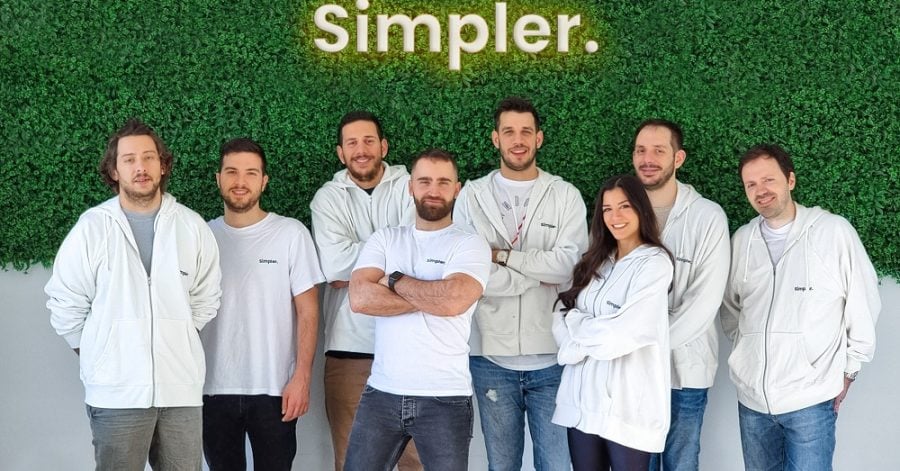Most of the time, online shopping can be lots of fun. However, sometimes the shopping experience can also get overwhelming, especially when customers need to enter their personal information multiple times in the space of minutes.
For those that like to shop a lot and from different online stores, this can become a real hassle. An over-complicated and long checkout process is one of the main reasons that the vast majority of shoppers (70% on the web and 85% on mobile) abandon their carts at that final step.
For Greek entrepreneur Rania Lamprou, having these types of experiences was what prompted her to start working on a solution that would ease the shopping process.
“I was thinking that there had to be a better way. If I can use social logins to log into a website, why can’t I use such a service to checkout? One independent service that is the source of truth for my data so that I will enter it once and then reuse it in every store I’m buying from, without having to trust each individual website or create accounts,” Lamprou explains.
Thus, this is how the idea for Simpler was born, she says.
A solution that enables shoppers to do a one-click purchase
The e-commerce startup was founded in 2021, with headquarters in London and offices in Athens. Simpler’s team consists of 11 people and is growing both in Athens and London.
“Looking at it from the merchant’s perspective, this checkout friction translates into billions of dollars in lost revenue from abandoned carts. Simpler is solving this problem by making it extremely easy for shoppers to buy anything online, giving them a single “shopping passport” so that every purchase is done with one click,” Lamprou, Simpler’s CEO and co-founder, tells The Recursive.
The shopping process can be done either in the traditional way, inside an e-commerce website or in a “remote” manner, by clicking on an ad, email, newsletter, or scanning a QR code that lets shoppers directly purchase a product, without having to actually be in the merchant’s e-commerce store.
This model is called “headless checkout”, and decouples the checkout process from the online stores for the first time.
“This is transformational in the way people shop and a win for both shoppers and merchants. Early results from our network of merchants show a double-digit conversion increase, while in many cases more than 70% of the total merchants’ orders are now processed through Simpler,” says Lamprou, who has an extensive background in ad tech and finance.
Last summer, Simpler also completed its first financing round of €1M. The series was led by Greek early-stage investor VentureFriends, with the participation of the MMC Ventures, as well as angel investors, experts in fintech, e-commerce, and technology.
The funds are already being channeled into growing the team with the right foundations, attracting talent, in order to create a strong core team capable of taking the company to the next level. They are eyeing rapid expansion into the European market.
For VentureFriends, investing in Simpler was a no-brainer.
“E-commerce can become easier, and end-users should be able to purchase directly with a link or from a product page. This higher convenience will also increase the conversion rate for retailers. Couple this clear market need with a great team and a very large market, and we have a compelling investment opportunity. And this is why we invested in Simpler,” Apostolos Apostolakis from VentureFriends tells The Recursive.
E-commerce innovation to continue thriving
Last year, global e-commerce retail sales reached $4.9T. The market is also expected to reach $6.4T in 2024. The COVID-19 pandemic also played a part in how e-commerce will develop in the long run, Lamprou points out.
“I strongly feel that Customer Experience will dominate the future of e-commerce and the companies that innovate on providing the ultimate CX across all touch-points -from product discovery to delivery- will be the ones to stay ahead of the curve in this digital-first environment,” she tells The Recursive.
Therefore, the “headless” or “remote” checkout is definitely here to stay, as a solution that allows shoppers to purchase what they want instantly on the spot, without any redirects.
“This technology can prove to be a massive enabler for D2C, in line with the perception that consumers won’t care about channels; they will simply ask for a perfectly crafted brand experience, anywhere they choose to buy,” Lamprou concludes.








